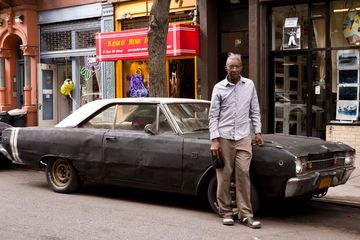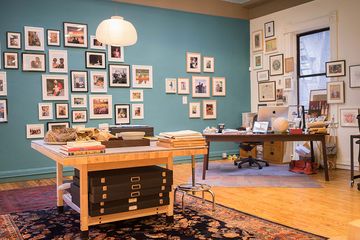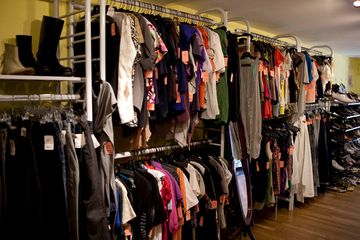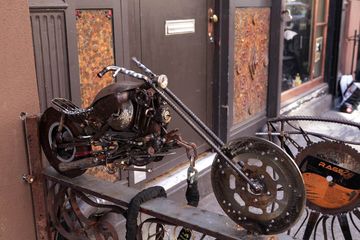So many of us tend to take photos on our phones these days, and then we are never quite certain what to do with them – whether to print them out, and where to place them in our home or office if we do - while others have acquired meaningful pieces of art over the years, but have no concept of how to hang them. This is where David Kassel and Michelle Conrad, the husband and wife team behind ILevel, come in. I had spoken on the phone with Michelle prior to our meeting, and I had, of course, read about ILevel on line. I was not at all prepared, however, for what I discovered upon entering their gallery on East 7th Street. The fantastic space is vast - absolutely ideal for displaying artwork in any form. David and Michelle greeted Lucas, the photographer, and me and invited us to sit on their couch as we began to chat, and play with their adorable new puppy. It was a perfect, relaxing atmosphere for anyone who is interested in receiving some great advice about decorating their walls. David began by sharing a bit of his background with me. I had to stop him immediately when he related that he had attended SUNY Purchase, for my family and I lived on the same street as the university for fifteen years. I, of course, knew the Neuberger Museum of Art at Purchase where David worked while a student. Following this, he secured a job at the Guggenheim Museum in New York. In the 1980s, when David became aware of the "crazy purchasing" of art that was going on with corporations, he decided that it was time to go out on his own and begin an art installation business. He has not looked back since. What came as another surprise to me was when David mentioned that he has lived in this brownstone for over forty years, only recently (2016) deciding to open a brick and mortar space, downstairs, for his thirty-year-old company. Today, the walls are covered with photos from Michelle and David's own family, as well as work from private dealers who do not have space to display paintings. When we were there, it was an eclectic mix with contemporary pieces, botanical works, and eighteenth century Hindu art. In addition, several walls were devoted to the fifteen members of their staff - all of them artists. Michelle added that they are constantly changing things up - creating unique configurations, as they want to be able to inspire those that come through their doors. "There are endless creative possibilities as to how one might choose to hang their artwork; we like to allow our clients to see what they, potentially, can do with their own collections. "Michelle is from Chicago and has had an interesting, successful career in marketing. Today, however, she chooses to work along side her husband, sharing ideas in any and every aspect of the business, as well as raising their two children. They appear to be one terrific duo. David shared several amusing stories with us from his encounters with clients. Who gets to share lox and bagels with someone in the Dakota building, or a cup of coffee with some of the most fascinating people in New York, hearing their stories, and looking through their photos? When I inquired as to whether or not the business continues to make them happy, David had no hesitation in responding, "We love what we do, even after all of these years... However, it is the relationships we form that are the most meaningful to us. " Elaborating, Michelle shared that people are always pleased to see them. "Often, we are the last step in what was otherwise a challenging renovation or move. " At the point that their team comes in, all the dust is, literally, settled, and the boxes are unpacked. ILevel is simply putting on the finishing touches by placing beautiful art on the bare walls.




